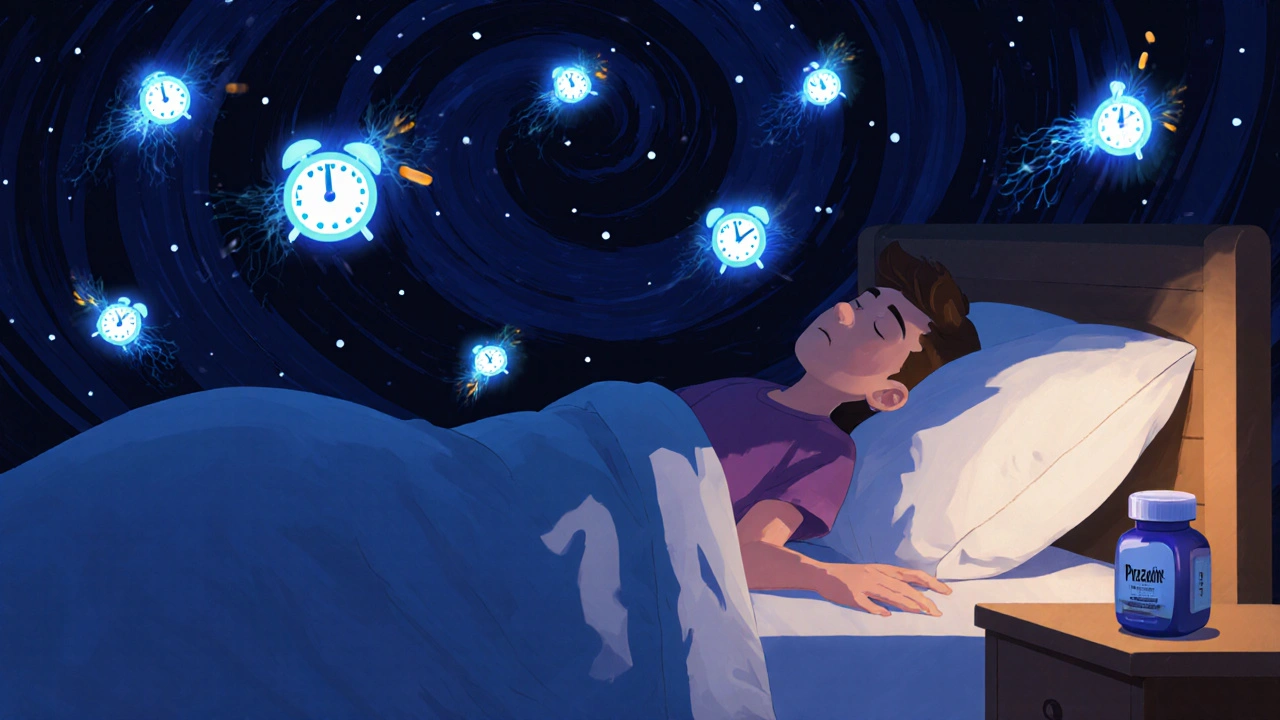Best Antidepressant for Sleep: What Actually Works
When you’re struggling with depression, a mental health condition that affects mood, energy, and daily function and can’t sleep at night, it’s not just about being tired—it’s about your brain chemistry being out of sync. Some antidepressants don’t just lift your mood—they also help you fall asleep and stay asleep. That’s why many people turn to them as a dual solution. But not all antidepressants are created equal when it comes to sleep. Some wake you up. Others pull you under. The right one can make all the difference.
Trazodone, a serotonin modulator often prescribed off-label for insomnia is one of the most common choices doctors recommend for sleep. It’s not primarily designed as a sleeping pill, but its sedating effect kicks in fast, and it doesn’t cause dependence like benzodiazepines. Then there’s Mirtazapine, an antidepressant that blocks certain histamine receptors, making drowsiness a built-in feature. It’s especially helpful if you’re also losing weight or have trouble eating because of depression. Both are used daily, not just when you can’t sleep, and they work best when taken at the same time each night.
Not every antidepressant helps with sleep. SSRIs like sertraline or fluoxetine? They often make insomnia worse, especially at first. Even SNRIs like venlafaxine can leave you wired. That’s why picking the right one matters. It’s not about finding the strongest drug—it’s about matching the right chemical effect to your body’s needs. If you’re exhausted but can’t shut off your mind, trazodone might be your best bet. If you’re depressed and underweight, mirtazapine could help you gain weight and sleep better at the same time.
There’s also Selegiline, an MAO inhibitor that boosts dopamine and can improve energy and motivation in treatment-resistant depression. While it’s not typically used just for sleep, people who struggle with fatigue and low drive often find their sleep improves once their overall mood stabilizes. It’s not a sedative, but it can break the cycle of lying awake because you’re too wired—or too numb—to rest.
What you won’t find in most lists is the truth about how long it takes. These aren’t overnight fixes. It can take 2 to 4 weeks before you notice real sleep improvements, even with the most sedating options. And while they’re safer than sleeping pills long-term, they still come with side effects—dry mouth, dizziness, morning grogginess. That’s why you need to work with a doctor, not just pick one off a forum.
Below, you’ll find real comparisons of medications people actually use, what they’ve experienced, and how they stack up against each other. No marketing. No guesswork. Just what works—and what doesn’t—for sleep and depression together.

